

Key results in 2022
Major business results
In 2022, the consolidated net profit totalled EUR 4.1 million (2021: EUR 4.1 million). The Group demonstrated modest EBITDA growth of 8% while the net profit stayed at the same level as in 2021. The net profit for 2022 declined due the higher loss of the joint venture AS Express Post for the period and the Group’s higher depreciation charge resulting from higher capital expenditures as compared to the same period last year. In addition, the comparable base for 2021 is higher due to recognition of one-off finance income in the amount of EUR 0.4 million for fair value adjustment of the future commitment related to the purchase price of the ticket sales platform. If to exclude the one-off effect in the net profit of 2021, the net profit of 2022 has increased by ca 11% compared to 2021.
As of 31 December 2022, the Group employed 884 employees which is 143 more as compared to the same period last year (31.12.2021: 741 employees). This growth is attributable to 66 employees who were transferred from the companies acquired, incl. OÜ Geenius Meedia, ELTA news agency in Lithuania and the news portal lrytas.lt acquired in December 2022. 77 employees were hired in other companies in Estonia, Latvia and Lithuania. Given the high inflationary and rising interest rate environment, we have selectively adjusted the salaries of Group employees and set up one-off support measures. In addition, cost reductions and individual redundancies were carried out in Latvia already in the 3rd quarter of 2022, as its advertising sales have failed to meet the Group’s internal targets.
In 2022, the one-off expenditure includes donations to Ukraine in the total amount of EUR 0.2 million.
The war in Ukraine has had a major negative effect on the GDP growth in the Baltic States. As a result, the economy has slowed down and created a high inflationary environment (in December 2022, inflation was 17.5% in Estonia, 20.0% in Lithuania and 20.7% in Latvia as compared to the previous year) which is currently one of the highest in the Eurozone. The inflationary environment will be a challenge in 2023. However, the positive news is that inflation is in a downward trend which started in the last quarter of 2022.
On 24 February 2022, military action began between Ukraine and Russia. The Group has neither any operations nor any assets in Ukraine and Russia, and therefore, the war has only an indirect impact on the Group. The operations of these countries have an indirect impact on the Baltic economies, including energy prices, raw materials and their overall impact on the economies of Europe and other Western countries.
In 2022, the Group’s cash flows from operating activities totalled EUR 8.0 million (2021: EUR 8.1 million, incl. printing services segment) that were positively impacted by increased business volumes as well as the ticket sales platforms operating in Estonia and Latvia. The sales activity of the Latvian ticket sales platform has recovered and is in a better position due to higher ticket prices as compared to the pre-Covid-19 period.
In 2022, the Group’s cash flows from investing activities totalled EUR -10.6 million (2021: EUR 1.0 million, incl. the sale of a discontinued operation in the amount of EUR 6.3 million), of which EUR -3.7 million was related to development and acquisition of property, plant and equipment and intangible assets, indicating higher investments in products and technologies. In 2022, the Group invested EUR -1.9 million in new LED screens, which has been partially funded with a finance lease.
In 2022, the Group’s cash flows from financing activities totalled EUR -0.9 million (2021: EUR -4.4 million), of which EUR -2.4 was the dividend payment to the shareholders of AS Ekspress Grupp. Financing activities also include a net change in borrowings in the amount of EUR 3.3 million and lease liabilities in the amount of EUR -1.8 million. When making investments in 2022, the Group has used debt in moderate amounts in the form of bank loans.
The Supervisory Board of AS Ekspress Grupp has approved the group's dividends policy, according to which Ekspress Grupp will pay at least 30% of the annual profit as dividends starting from 2022.
| Performance indicators (EUR thousand) | 2022 | 2021 | Change % | 2020 | 2019 | 2018 |
| Continuing operations | ||||||
| Sales revenue | 64,141 | 53,516 | 20% | 44,514 | 44,717 | 37,879 |
| Revenue from all digital channels (%) | 78% | 76% | 70% | 68% | 65% | |
| EBITDA | 8,891 | 8,240 | 8% | 5,924 | 4,904 | 2,041 |
| EBITDA margin (%) | 13.9% | 15.4% | 13.3% | 11.0% | 5.4% | |
| Operating profit /(loss) | 4,797 | 4,864 | -1% | 3,071 | 2,337 | 850 |
| Operating margin (%) | 7.5% | 9.1% | 6.9% | 5.1% | 2.0% | |
| Interest expenses | (738) | (709) | -4% | (860) | (1,085) | (721) |
| Profit (loss) of joint ventures under equity method | (242) | (281) | 14% | 102 | (38) | (273) |
| Net profit from continuing operations | 4,055 | 4,133 | -2% | 2,566 | 755 | (614) |
| Net margin (%) - continuing operations | 6.3% | 7.7% | 5.8% | 1.7% | -1.6% | |
| Return on assets ROA (%) | 4.3% | 2.4% | 2.7% | 1.6% | 0.0% | |
| Return on equity ROE (%) | 7.6% | 4.1% | 4.9% | 2.8% | 0.0% | |
| Earnings per share (euro) - continuing operations | ||||||
| Basic earnings per share | 0.1335 | 0.1362 | -2% | 0.0852 | 0.0249 | (0.0212) |
| Diluted earnings per share | 0.1294 | 0.1316 | -2% | 0.0820 | 0.0249 | (0.0212) |
| Balance sheet (EUR thousand) | 31.12.2022 | 31.12.2021 | Change % | 31.12.2020 | 31.12.2019 | 31.12.2018 |
| As of the end of the period | ||||||
| Current assets | 19,444 | 20,553 | -5% | 18,482 | 19,472 | 13,831 |
| Non-current assets | 80,392 | 73,705 | 9% | 75,695 | 75,935 | 62,907 |
| Total assets | 99,836 | 94,258 | 6% | 94,177 | 95,407 | 76,738 |
| incl. cash and cash equivalents | 7,448 | 10,962 | -32% | 6,269 | 3,647 | 1,268 |
| incl. goodwill | 48,779 | 45,576 | 7% | 43,085 | 42,628 | 37,969 |
| Current liabilities | 22,422 | 20,947 | 7% | 18,945 | 21,647 | 12,186 |
| Non-current liabilities | 21,991 | 19,619 | 12% | 20,613 | 22,137 | 14,118 |
| Total liabilities | 44,413 | 40,566 | 9% | 39,558 | 43,784 | 26,304 |
| incl. borrowings (excl rental liabilities according to IFRS 16) | 20,763 | 17,062 | 22% | 19,181 | 21,307 | 15,474 |
| Equity | 55,423 | 53,692 | 3% | 54,619 | 51,622 | 50,434 |
| Financial ratios (%) | 31.12.2022 | 31.12.2021 | 31.12.2020 | 31.12.2019 | 31.12.2018 | |
| Equity ratio (%) | 56% | 57% | 58% | 54% | 66% | |
| Debt to equity ratio (%) | 46% | 41% | 41% | 47% | 31% | |
| Debt to capital ratio (%) | 24% | 17% | 23% | 29% | 22% | |
| Total debt/EBITDA ratio | 2.34 | 2.07 | 2.74* | 3.15* | 3.63* | |
| Liquidity ratio | 0.87 | 0.98 | 0.98 | 0.90 | 1.13 | |
| * For years 2020-2018 total debt/EBITDA ratio is calculated on the basis of EBITDA, which also includes EBITDA from discontinued operations. | ||||||
| (EUR thousand) | Sales | |||||
| 2022 | 2021 | Change % | 2020 | 2019 | 2018 | |
| Media segment | 62,690 | 52,093 | 20% | 43,728 | 44,218 | 37,248 |
| advertising revenue | 37,613 | 33,781 | 11% | 28,173 | 29,472 | 26,226 |
| subscriptions (incl single-copy sales) | 16,819 | 13,311 | 26% | 11,336 | 10,199 | 8,550 |
| marketplaces | 2,232 | 1,013 | 120% | 851 | 1,368 | 0 |
| outdoor screens | 2,396 | 1,448 | 65% | 920 | 1,148 | 207 |
| sale of other goods and services | 3,630 | 2,539 | 43% | 2,448 | 2,031 | 2,265 |
| Corporate functions | 4,500 | 4,118 | 9% | 2,761 | 2,076 | 2,341 |
| Inter-segment eliminations | -3,050 | -2,695 | -1,975 | -1,577 | -1,710 | |
| TOTAL GROUP | 64,141 | 53,516 | 20% | 44,514 | 44,717 | 37,879 |
| incl. revenue from all digital channels | 49,928 | 40,453 | 23% | 30,963 | 30,534 | 24,561 |
| % of revenue from all digital channels | 78% | 76% | 70% | 68% | 65% |
The year can be summed up with three main trends:
- paid content continued to grow in all of our key markets in Estonia, Latvia and Lithuania;
- different content products were bundled into subscription packages and average prices of digital subscriptions increased;
- regulators continued to scrutinise the activities of global platforms in Europe and the competitive pressure exerted by them on local media stabilised.
A year ago we expected strong growth in demand and supply of paid digital content, better choices for readers, increased consumer spending on digital content, lower turnover and higher effective prices. In addition, we expected stronger regulation of global platforms in the world, and an increase in the share of local media companies in terms of consumers’ attention.
The Estonian, Latvian and Lithuanian markets developed as expected in terms of digital subscriptions during the year. Ekspress Grupp as the largest provider of digital subscriptions in the news media segment in our key markets, saw the total number of digital subscriptions in the Baltic states grow by 12% during the year, amounting to nearly 146.6 thousand subscriptions at the end of the year. In Estonia, the number of digital subscriptions of Delfi Meedia grew the most, which increased by 14% over the year. The fastest growth was recorded by Geenius Meedia, whose digital subscriptions increased by 37%. Õhtuleht Kirjastus, Delfi Latvia and Delfi Lithuania saw continued growth of digital subscriptions that increased by 7%, 5% and 8%, respectively, as compared to the previous year. However, the total number of consumers of digital content is still modest as compared to the size of the potential market, and we continue to believe that the digital subscription business model will continue to thrive in our markets for many years to come. In news media, digital subscriptions are an increasingly accepted product among our readers, as shown by the increasing number of subscriptions and the decreasing subscriber turnover. We are witnessing that more and more readers are subscribing to digital news media in order to stay up to date with important topics in society. In addition, developments in the paper media market in Estonia over the last days of 2022, where major daily newspapers announced that they will terminate publishing papers on Mondays due to the increase in delivery costs, are likely to cause an additional long-term increase in demand of digital subscriptions.
In the new year, we expect the demand for and supply of digital content to continue to grow and the business model of digital subscriptions to expand in our key markets. Expenditure on digital content by consumers is likely to increase both through an increase in the number of subscriptions per consumer and an increase in the average prices of subscriptions. With regard to the tasks of publicly funded broadcasting bodies, we expect a wider discussion and greater clarity. The price levels of online advertising depend on the economy, but we generally expect price levels to remain stable.
In 2022, media segment revenue totalled EUR 62.7 million (2021: EUR 52.1 million). Revenue increased by 20% as compared to the same period last year. The revenue growth was strong as compared to the previous year, but it has still been negatively impacted by the war in Ukraine due to which several planned campaigns were postponed by advertising customers in the 1st quarter. At the end of 2022, the Group’s digital revenue contributed 78% to total revenue.
Revenue growth is primarily attributable to the growth in online advertising. The advertising market has not significantly increased in terms of its size as compared to the same period last year, but it is the online advertising market that has continued its upward trend as compared to traditional media channels and where group companies have additionally managed to increase their volumes as compared to other market participants. Regarding print advertising, which the Group only has in Estonia, it is positive that we have been able to maintain the level of 2021. At the same time, due to the decrease in circulations and the cancellation of the publication of daily newspapers on Mondays, starting from January 2023, a decrease in the share of print advertising is predictable, which is expected for the Group.
In 2022, the subscription revenues increased by 26% as compared to the same period last year. The growth is primarily attributable to the growth in the number of digital subscriptions and the average price of the subscription in all media houses. For the Group, it is important to grow digital subscriptions and thereby be less dependent on advertising revenues in the long term.
Under marketplaces, the Group recognises the sales revenue of ticket sales platforms in Estonia and Latvia. In 2022, we doubled the sales revenue of the ticket sales platforms. The 2021 base has a significant impact from the Covid-19 restrictions that were in effect throughout the 4th quarter of 2021 and for the entire year of 2021. In Latvia, all Covid-19 restrictions, that were in effect for almost two years, were lifted from 1 April 2022. The sales of the Latvian ticket sales platform are exceeding the volume of 2019 (the normal operating period before the Covid-19 restrictions), partly due to the increase in the average ticket price in gross amounts. Starting from April 2021, the Group entered the Estonian market with the ticket sales platform Piletitasku. With the expansion of the ticket sales business into Estonia, the Group will continue its current strategy, the purpose of which is to increase the share of digital revenue, and identify synergies between new business lines and existing media activities. We wish to provide the most convenient platform for both ticket buyers as well as event organisers. The platform has been well received and the Group has increased its market share in 2022 as expected.
Outdoor screens in Estonia and Latvia have grown mainly due to the increased number of screens, which as of 31.12.2022 was 84 (31.12.2021 the total number of screens: 57). The Latvian outdoor media company SIA D Screens which won the public tender granting it the right to rent the real estate properties owned by the City of Riga continues to actively develop its outdoor screen network. The contract enables the company to expand its network to more than 100 screens and participate in the market with both large and small screen networks that cover the most important roads in Riga. New screens are partially installed by end of 2022, leading to additional advertising sales capabilities for the Group. Until the setup of new screens, the cost base of the Latvian outdoor media company will be impacted by the rent payable to the City of Riga which in 2022 totalled EUR 0.2 million.
- The number of digital subscriptions of AS Delfi Meedia that publishes the news portal Delfi, newspapers Eesti Päevaleht, Maaleht, Eesti Ekspress and several popular magazines increased by 14% year-over-year and totalled 85 551.
- The number of digital subscriptions of AS Õhtuleht Kirjastus, 50% of which is owned by Ekspress Grupp, increased by 7% year-over-year and totalled 22 530.
- The number of digital subscriptions of Geenius Meedia OÜ increased by 37% year-over-year and totalled 5 616.
- In Latvia, the number of digital subscriptions of Delfi A/S increased by 5% year-over-year and totalled 14 131.
- In Lithuania, the number of digital subscriptions of Delfi increased by 8% year-over-year and totalled 18 780.
The number of Ekspress Group's digital subscriptions continued to grow rapidly in all Baltic States in 2022 and has increased the sales revenue of our digital subscriptions. The growth proves that the paid content model is sustainable and has an increasingly important role in the revenues of Group’s media businesses. Although consumer spending in the Baltic States is under increasing scrutiny due to inflation and general price increase, the last year’s turbulent events kept readers' interest in independent journalism high.
In Estonia, the number of subscribers of Delfi Meedia, the subsidiary with the largest number of digital subscribers, grew the most, by nearly 11 000 or 14% year-over-year. Geenius Meedia demonstrated the fastest growth last year, the digital subscriptions up 37% or by more than 1 500.
The number of digital subscriptions of Delfi in Latvia and Lithuania was affected by changing the packages to be similar to those of Estonia. While in Latvia and Lithuania previously narrower content packages of different Delfi topics were offered and each product was counted as digital subscription separately, in the 4th quarter of last year a unified package-based logic was introduced, giving the digital subscribers broader access to all Delfi content.
As a result of the bundling, the number of digital subscriptions in Latvia and Lithuania decreased, but the average digital subscription price increased.


















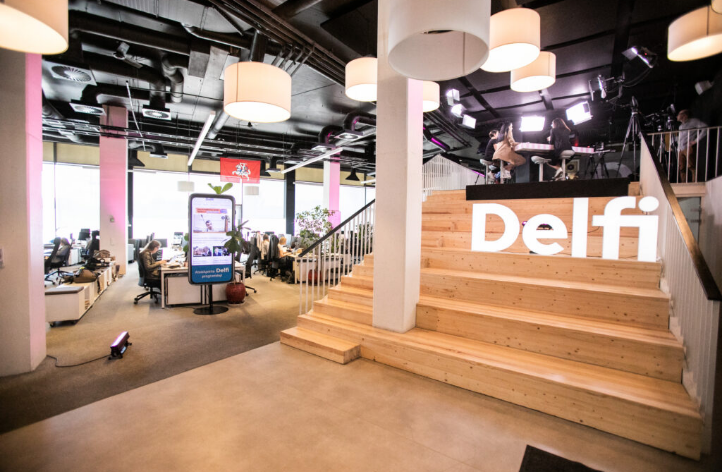

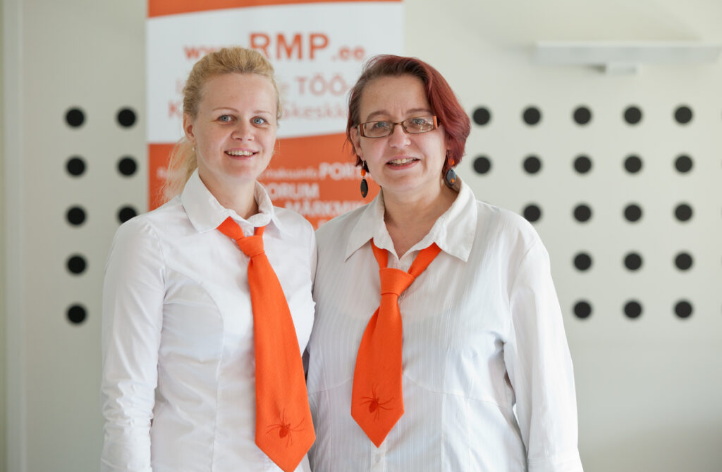
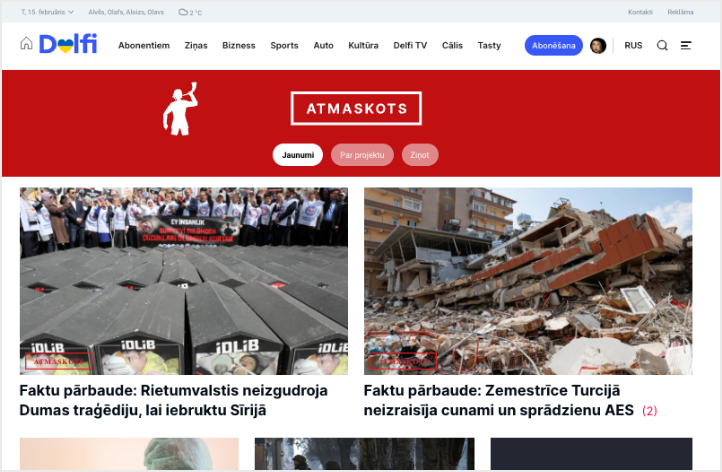
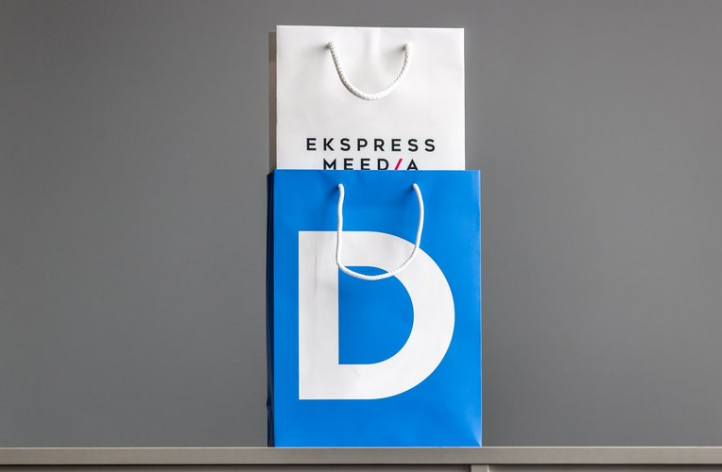
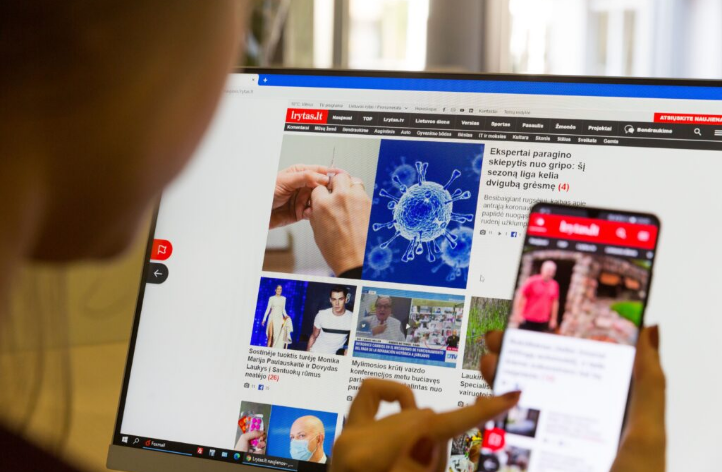

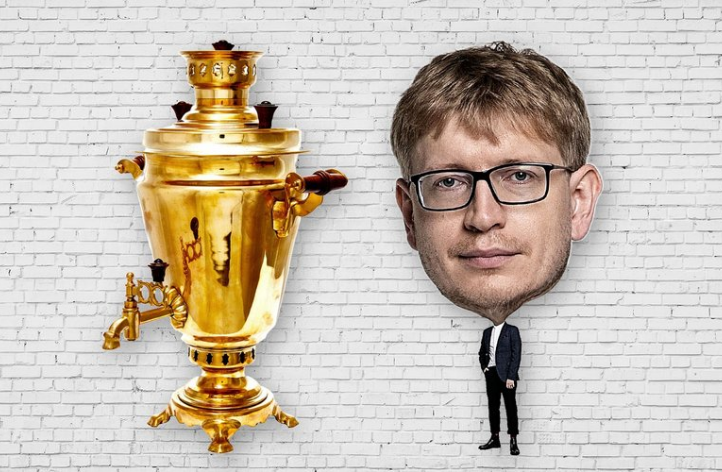
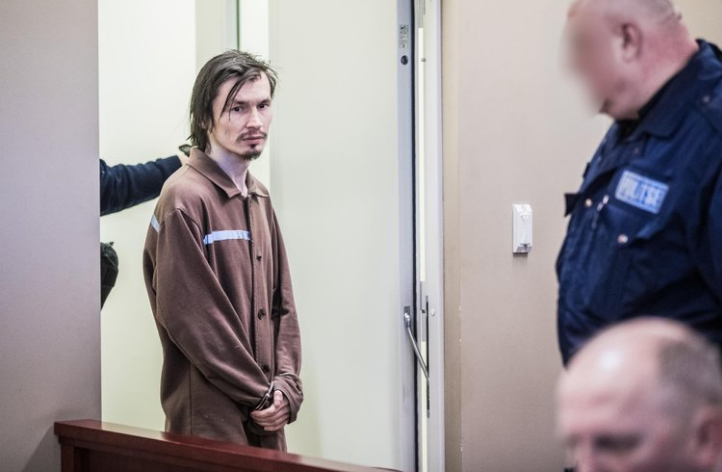

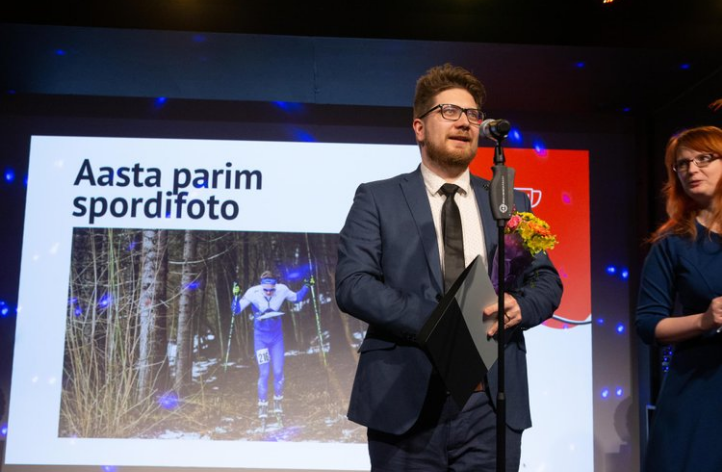

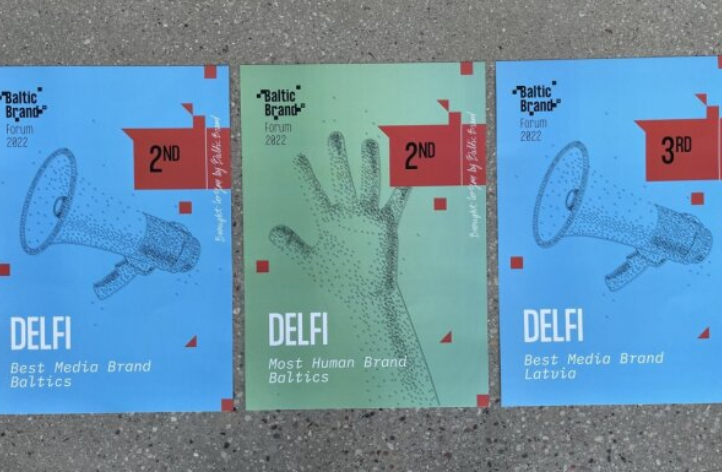
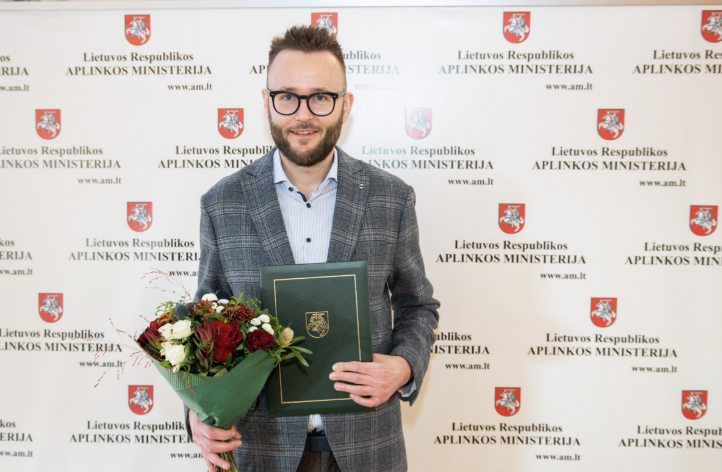
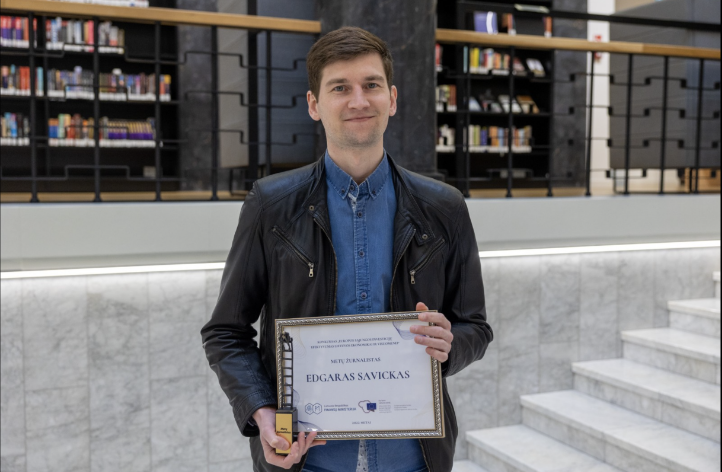
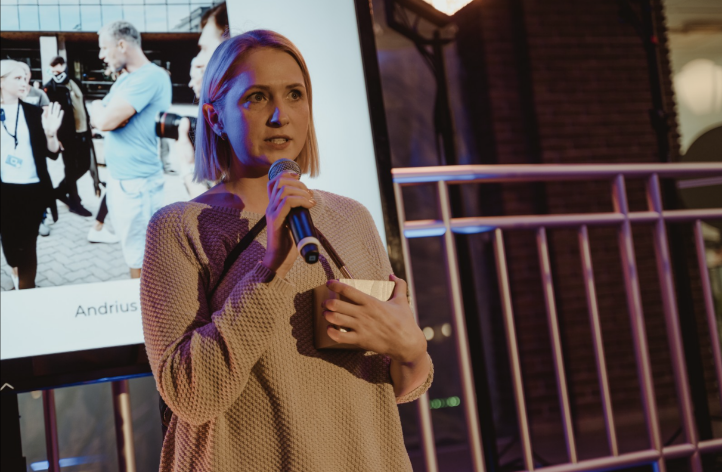






Statement of the chairman of the management board
The year 2022 challenged the Ekspress Group in many ways, which is also being reflected in our annual report.
On February 24th, 2022, the world changed completely for many people across Europe. Russia's military aggression against Ukraine came as a shock to the entire developed world. For media companies, in many ways, it marked the beginning of a whole new era.
Our publications had to learn a lot of things that had previously seemed remote and even impossible: how to cover the war in a country close to us, whether and where to draw the line in reporting the details of what is happening, how to protect journalists and which tools to give them in the new situation. Additionally, in all our media outlets, we learnt how to counteract the large-scale Russian propaganda, how to combat constant cyber-attacks and how to ensure the operational continuity of media outlets in times of a crisis, such as possible power cuts.
I am proud to say that despite these challenges, we still remained committed to our mission to serve democracy. Even during the crisis, we remained focused on providing reliable and objective news, and remained devoted to reporting the conflict accurately and neutrally, reflecting our belief in the importance of free press. Thanks to our journalists devotion, we were able to provide our audiences with quality content that is highly appreciated by our readers and media experts alike. In addition to digital media, we continued publishing high quality media editions on paper for readers who value this format.
– Mari-Liis Rüütsalu, Chairman of the Management Board